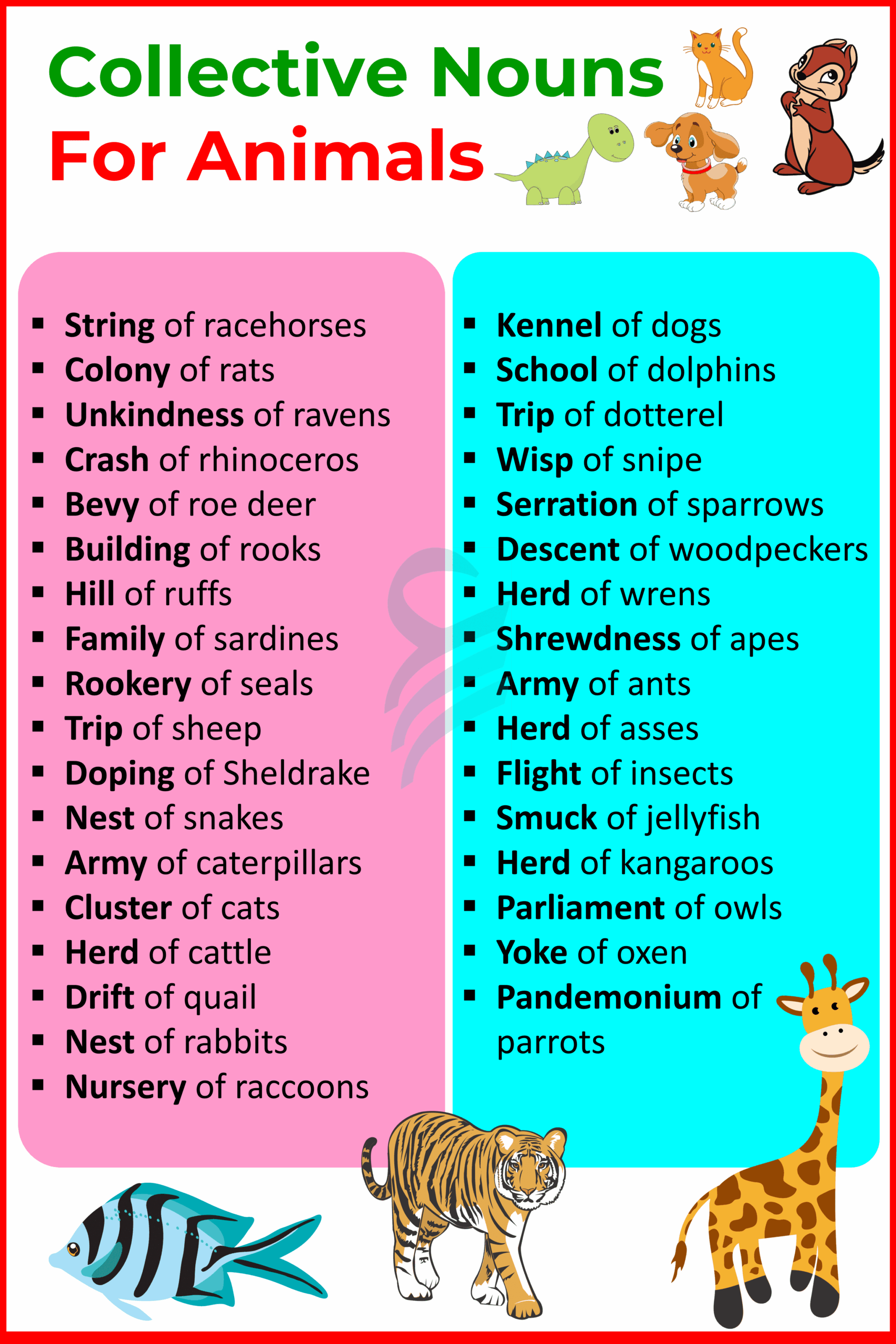Wild animals are fascinating creatures that roam the vast landscapes of our planet. From the majestic lions of the African savannah to the playful dolphins of the ocean, these animals often move in groups known as collective nouns.
Collective nouns are unique terms used to describe a group of animals of the same species. These nouns can vary in complexity and creativity, adding a sense of poetry to the language we use to refer to these creatures.
Examples of Collective Nouns for Wild Animals
One well-known collective noun for wild animals is a “pride” of lions. Lions are social animals that live in groups called prides, usually consisting of multiple lionesses, their cubs, and a few dominant males.
Another example is a “herd” of elephants. Elephants are highly social animals that form close-knit family groups led by a matriarch. When they travel together, they are referred to as a herd.
A “pack” of wolves is another common collective noun. Wolves are known for their strong social bonds and cooperative hunting strategies. A pack typically consists of an alpha male and female, along with their offspring.
Other examples of collective nouns for wild animals include a “troop” of monkeys, a “school” of fish, and a “pod” of dolphins. Each of these terms captures the essence of how these animals interact and move together in their natural habitats.
Collective nouns not only serve as a linguistic tool but also offer insight into the behavior and social structures of wild animals. They remind us that these creatures are not solitary beings but rather part of a larger community that plays a vital role in the ecosystem.
Next time you encounter a group of wild animals in the wild or at the zoo, take a moment to appreciate the collective noun that describes them. It adds a layer of depth and richness to our understanding of these fascinating creatures and the way they interact with each other.
In conclusion, collective nouns for wild animals offer a unique and creative way to describe the groups of creatures that inhabit our planet. They provide a glimpse into the social dynamics and behaviors of these animals, reminding us of the interconnectedness of all living beings in the natural world.
